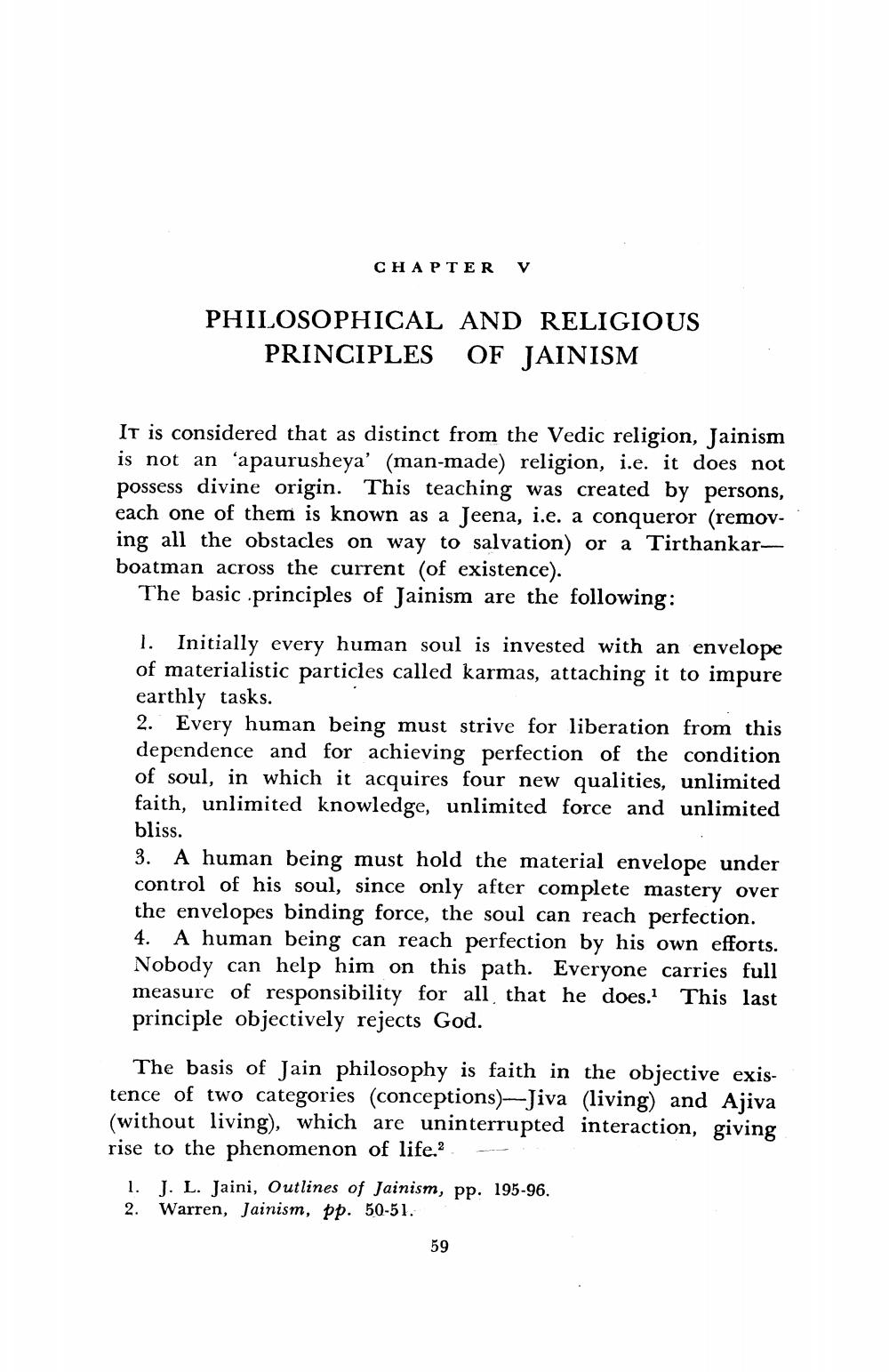________________
CHAPTER V
PHILOSOPHICAL AND RELIGIOUS PRINCIPLES OF JAINISM
IT is considered that as distinct from the Vedic religion, Jainism is not an 'apaurusheya' (man-made) religion, i.e. it does not possess divine origin. This teaching was created by persons, each one of them is known as a Jeena, i.e. a conqueror (removing all the obstacles on way to salvation) or a Tirthankarboatman across the current (of existence).
The basic principles of Jainism are the following:
1. Initially every human soul is invested with an envelope of materialistic particles called karmas, attaching it to impure earthly tasks.
2. Every human being must strive for liberation from this dependence and for achieving perfection of the condition of soul, in which it acquires four new qualities, unlimited faith, unlimited knowledge, unlimited force and unlimited bliss.
3. A human being must hold the material envelope under control of his soul, since only after complete mastery over the envelopes binding force, the soul can reach perfection. 4. A human being can reach perfection by his own efforts. Nobody can help him on this path. Everyone carries full measure of responsibility for all that he does.1 This last principle objectively rejects God.
The basis of Jain philosophy is faith in the objective existence of two categories (conceptions)-Jiva (living) and Ajiva (without living), which are uninterrupted interaction, giving rise to the phenomenon of life.2
1. J. L. Jaini, Outlines of Jainism, pp. 195-96. Warren, Jainism, pp. 50-51.
2.
59




